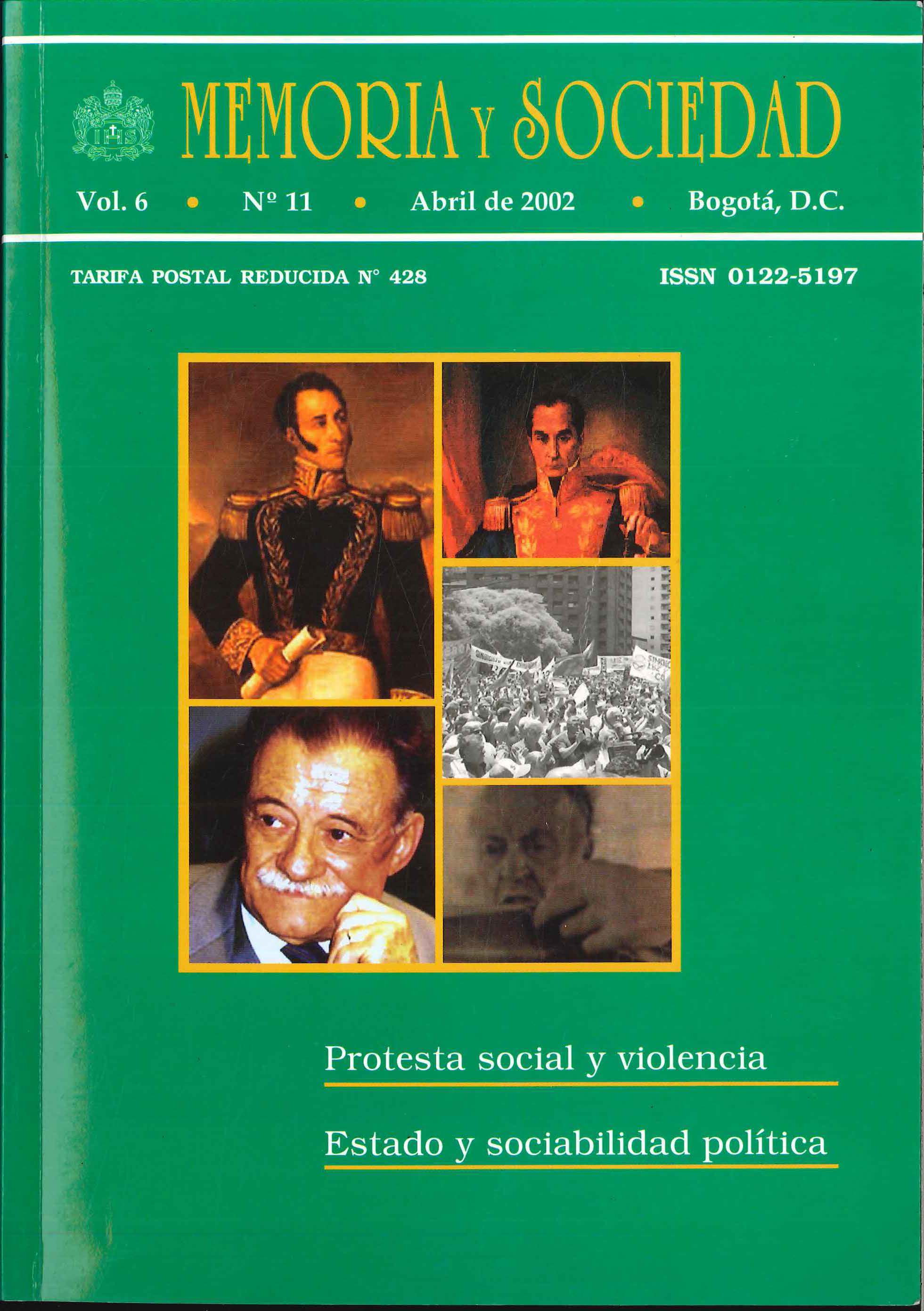Abstract
Considering the general tendencies of the Resguardo in colonial Hispanic America, the Indian town of Coyaima de la Real Corona, located in what is today the southern region of the deparment of Tolima, is studied as an unusual Resguardo, not only due to its fundation characteristics but also due to the town's historic process.
Founded as "A Town of the Royal Crown" by virtue of the collaboration of the Coyaima in the war against the Pijaos, this settlement, made up of communinty with similar ethnic and cultural characterisicts, was able to conserve a certain degree of political autonomy before the Crown and, in particular, before the local authorities and neighboring hacendados. Freed from forced tribute payments, under a somewhat autonomous goverment, with a homogenous social makeup and extensive communal held lands, Coyaima could forcefully confront the encroachment of the large land holders ovre their territories, especially during the 18th century.
The journal Memoria y Sociedad is registered under a Creative Commons Attribution 4.0 International Public License. Thus, this work may be reproduced, distributed, and publicly shared in digital format, as long as the names of the authors and Pontificia Universidad Javeriana are acknowledged. Others are allowed to quote, adapt, transform, auto-archive, republish, and create based on this material, for any purpose (even commercial ones), provided the authorship is duly acknowledged, a link to the original work is provided, and it is specified if changes have been made. Pontificia Universidad Javeriana does not hold the rights of published works and the authors are solely responsible for the contents of their works; they keep the moral, intellectual, privacy, and publicity rights.
Approving the intervention of the work (review, copy-editing, translation, layout) and the following outreach, are granted through an use license and not through an assignment of rights. This means the journal and Pontificia Universidad Javeriana cannot be held responsible for any ethical malpractice by the authors. As a consequence of the protection granted by the use license, the journal is not required to publish recantations or modify information already published, unless the errata stems from the editorial management process. Publishing contents in this journal does not generate royalties for contributors.

